an integrated program of innovation and research development in agricultural sciences and veterinary sciences
Keynote speakers
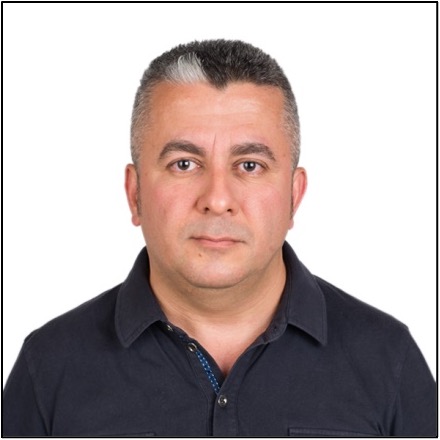
Erkan YALÇIN, Ph.D., MSc., is a faculty member at the Department of Food Engineering, Bolu Abant İzzet Baysal University in Türkiye. He gained BSc. degree from the Department of Food Science and Technology, University of Ankara in Türkiye; MSc. degree from the Department of Food Science, University of Wisconsin-Madison in USA; Ph.D. degree from the Department of Food Engineering, Hacettepe University. His research facilities are focussing on cereal, legume and pseudocereal chemistry and technology, basically functional properties of grain proteins, starch properties of grain flours, gel electrophoretic properties of storage proteins and bioactive compounds of grains.
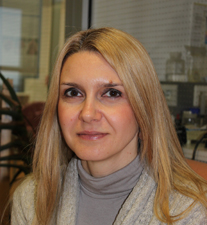
Natalija Filipović, DVM, PhD is an associate professor of human anatomy at the Faculty of Medicine, University of Split, Croatia. She graduated and received her PhD from the Faculty of Veterinary Medicine, University of Zagreb. Since 2011, she has been working at the Faculty of Medicine, University of Split, in the Department of Anatomy, Histology and Embryology. Prof. Filipović’s scientific interest explores microvascular and macrovascular complications of diabetes, especially diabetic nephropathy, as well as renal physiology and pathology. Another part of her research focuses on gene expression during embryonic and foetal development, with particular emphasis on normal development and congenital abnormalities of the kidneys and urinary system. To date, she has published more than hundred scientific papers and has been involved in the implementation of several scientific research projects.
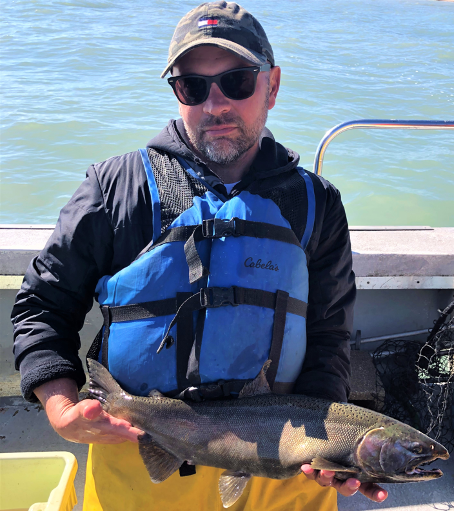
Sergiusz Czesny, Ph.D. – Dr. Czesny earned his MS degree from the University of Lodz, Poland in 1993, and Ph.D. from the Ohio State University in 2000. His research interests focus on the ecology and ecophysiology of aquatic ecosystems. He is interested in the ecosystem scale trophic interactions, population dynamics, and early life history of fish, predator-prey interactions, and the ecology of invasive species. He also pursues questions related to the function of essential nutrients (vitamins, fatty acids, etc.) in aquatic food webs and their role in regulating reproductive success and recruitment of fish.

Sergi López Vergé, PhD – Involved in Animal production since 2011, I studied the Master of Animal and Food Science to access doctoral studies. In the aforementioned Master, I developed a project related to the use of insects in broiler chicken feed. Subsequently, I developed my PhD project in swine with the aim of exploring, quantifying, and prioritizing the main factors (nutrition, management, etc.) involved in the variability of live weight throughout the entire swine cycle, from birth to animal sacrifice. Following the completion of my Phd, I was involved in the European project ‘Smartfarming’, a 3-year project in which I mainly explored the technification of poultry farms (broilers) and pigs (sows and fattening pig farms) with the aim of obtaining and managing productive data to help producers in the decision making with the aim at improving the efficiency of the processes. The data obtained provided information on aspects such as gas emissions (mainly NH3 and CO2), environment (humidity and temperature), water consumption (in sows and fattening pigs), live weight variability (fattening pigs) and finally, precision feeding (fattening pigs). Since 2021, I have been responsible for swine species in the innovation division of Lucta (Animal Science Unit) located in the Campus of Autonomous University of Barcelona (UAB), where, together with the rest of the unit’s researchers, I am involved in the development of new sensory additives focused on the palatability of feed with the aim of to modulate the pig’s voluntary feed intake in the different productive phases, with special attention in the period around the weaning. I also participate in the development of new additives of a more functional nature, aiming to improve digestive physiology (“gut chemosensing”) and pig welfare. Regarding animal welfare, in the Animal Science Unit we are actively collaborating in several projects with FAWEC (Farm Animal Welfare Education Center) from Autonomous University of Barcelona. I also coordinate the trials in Lucta’s swine experimental unit (S.E.U) and validation field trials with customers or/and other reference research centers. Finally, I also collaborate giving technical support to the commercial division of zootechnics with key customers.

Doctor of technical sciences, professor Givi Gavardashvili, academic teacher, hydrologist, director of the Institute of Water Management at the Georgian Technical University in Tbilissi. He is the author of over 260 scientific articles, including 18 monographs published in 13 language and 6 books. For his work, he has been awarded and honoured many times.
In addition to academic activities, Givi Gavardashvili actively works for the environment in many organizations and committees. He is the director of the Environmental Protection Ecocenter, an organization with the consulting company of the United Nations Economic and Social Council (ECOSOS). He is the vice-chairmen of the Georgian National Commission for Irrigation and Drainage, a member of the State Commission for Assessing the Environmental Damage Caused caused by the hostilities in Georgia in August 2008, and the State Commission for Planning the Vere Gorge following the natural disasters in Tbilisi on June 13, 2015.

Professor Seda Karasu Yalcin is a faculty member at the Department of Food Engineering, Bolu Abant İzzet Baysal University, Turkey. She gained BSc, MSc. and Ph.D. degrees from the Department of Food Engineering, Hacettepe University. Her research areas are food biotechnology, industrial microbiology and food microbiology. She is studying on fermentation kinetics, microbial production of citric acid, glycerol, xylitol and biosurfactants, microflora of fermented foods and identification of yeasts.

Prof. Barbara Wróblewska – The main area of Ms. Barbara Wróblewska’s research includes the development, investigation, and analysis of fermented dairy products in terms of lowering their immunoreactive properties, the effect of designed products on modulation of the host immune system (in vitro, in vivo, and ex vivo animal models) and evaluation of reactivity of bacterial proteins of and their effect on immunostimulation. The second scientific area is a food allergy, the mechanisms of its onset, the body’s response at the cellular level, and changes in the host microbiota, as well as the possibilities of prevention and treatment through personalized diets. The influence of selected food components on the intestinal ecosystem is the focus of numerous invited lectures.
Member of international expert groups: SAFE Consortium European Association for Food Safety; EASAC European Academies’ Science Advisory Council – Working Group on “Food and nutrition security and agriculture”; BIOEAST – Central Eastern European Initiative for Knowledge-based Agriculture, Aquaculture and Forestry in Bioeconomy; FOODforce, the network of leading European research provider organizations active in the areas of food, nutrition, and health.
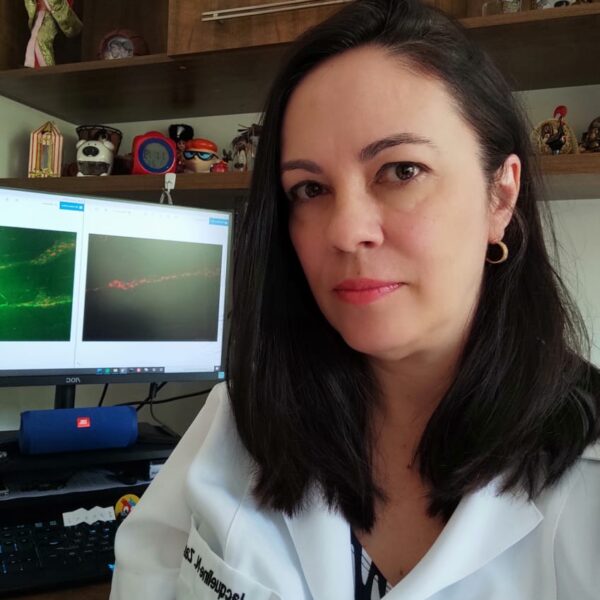
Jacqueline Nelisis Zanoni, Phd, Associate Professor – Graduated in Pharmacy from the State University of Maringá (1990), Master (1996) and Doctor (2001) in Biological Sciences (Cell Biology) from the State University of Maringá and additional training in the Enteric Neuroscience Program at Mayo Clinic, Rochester in 2012 and 2015. Collaborating Researcher of the Enteric Neuroscience Program – Mayo Clinic- MN-USA and also with the University of Antwerp, Belgium. Histology and Embryology professor at the State University of Maringá since 1992, currently Associate Professor C. Research leader on chronic degenerative diseases and enteric neural plasticity at National Council for Scientific and Technological Development (Brazil). Advisor on the Pharmaceutical sciences and Physiological Sciences graduate programs at the State University of Maringá. Advised 24 master’s thesis, 18 doctoral theses, and 2 post-doctoral. Works on the following topics: Neurogastroenterology, Diabetic Neuropathy, Oxidative Stress,Antioxidant Food Supplements, and Cellular Aging. Coordinates the extension project of the Interdisciplinary Dynamic Museum (MUDI): Second Brain Space: from production to popularization of the Enteric Nervous System knowledge.
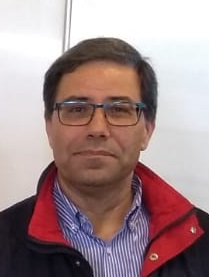
Prof. Paulo Correia De Sá defended His PhD thesis in 1995 at Biomedical Sciences (Pharmacology) Instituto de Ciências Biomédicas Abel Salazar – University of Porto and at the same University He finished His habilitation studies at 2006. Since October 2007 He is a full professor of Pharmacology and Neurosciences, ICBAS-UP. He became a Head of the Laboratory of Pharmacology and Neurobiology, ICBAS/UP in April 1999 and in January 2000 also a Head of the Department of Immuno-Physiology and Pharmacology, ICBAS/UP. He is an author or co-author of 206 peer reviewed papers in international journals and 14 book chapters with a high number of citations (>2500). He was a supervisor of 65 MSc thesis and 20 PhD thesis. His scientific parameters are also high – RG score 40.9 and h-Index 28. Prof. Paulo Correia De Sá is also the recipient of many scientific awards and a member of many Scientific Societies. His main research interests is the investigation of the pathophysiological role of purines (ATP and its metabolites) in human cells signaling and in animal models of human diseases, searching for new targets for therapeutic intervention.

Dr hab. Aleksandra Ziembińska-Buczyńska, prof. PŚ – microbiologist, academic teacher, science communicator. Professionally working with the Environmental Biotechnology Department, Faculty of Power and Environmental Engineering of the Silesian University of Technology. She works in the field of bacterial communities in the natural and technological environment molecular biology and classical microbiology approach. Her scientific interests include the usage of microorganisms in environmental bioremediation and biotechnological production, including green energy production and circular economy. Member of the Association of the Spokesmen of Science and Council for the Science Dissemination of the Polish Academy of Sciences.
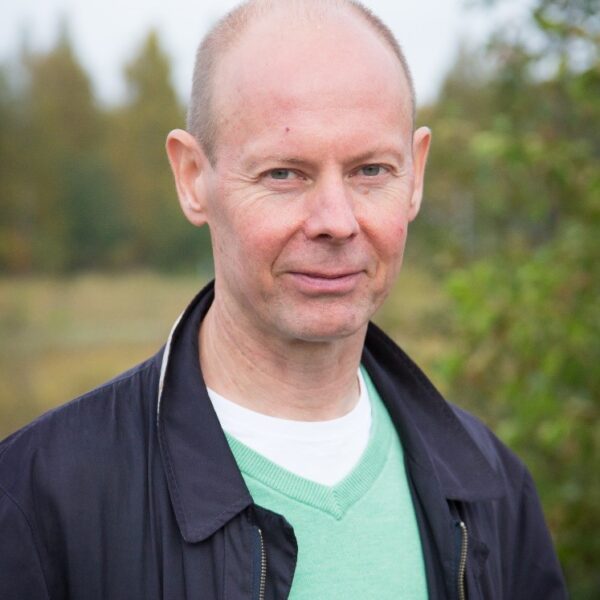
Heikki Mäkinen (PhD in Planning Geography) has almost 30 years of experience in the field of water management at a UN, EU, national and local level. Nowadays he works as a CEO in Lake Vesijärvi Foundation in the city of Lahti, Finland. The Lake Vesijärvi Foundation is a Finnish initiative combining public and private resources to secure funding for research, maintenance, and management efforts focusing on Lake Vesijärvi and its catchment area. Heikki Mäkinen` s key qualifications are in promoting the wider concept of governance principles into the implementation of water management actions in practice. Besides public participation issues his main interests are in ecological, economic, social and cultural aspects of lake restauration.
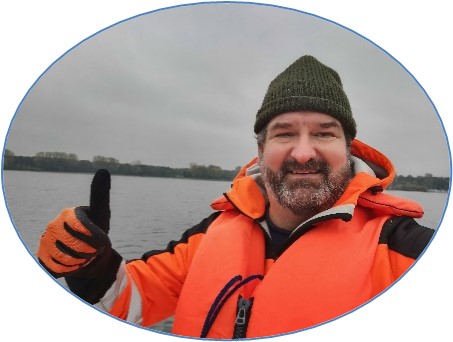
Miquel Lurling – My research focuses on eutrophication related issues, such as cyanobacterial blooms, mitigation of cyanobacterial nuisance and eutrophication control. It encompasses controlled laboratory experiments, mesocosms, in-situ enclosures and whole lake restoration projects. I advise authorities in lake restoration projects. I am board member of the Dutch Platform Ecological Restoration of Lakes, co-chair of the Working Group on Lake Restoration of the International Limnological Society, chair of the foundation International Water Quality Management, co-founder and senior scientist in the Aquatic Knowledge Centre Wageningen.

M. Tugrul MASATCIOGLU, Associate Professor Doctor – Dr Masatcioglu received his BSc from Ankara University, Faculty of Agriculture in 2000, MSc from Hatay Mustafa Kemal University in 2005, and PhD in Food Engineering from Hacettepe University in 2013. He was a visiting scholar at Kongju National University, Department of Food Science and Technology, Yesan, Chungnam, South Korea, in June–August 2007, and at Michigan State University, Department of Food Science and Human Nutrition, MI, USA, November 2009–March 2010. He was also a visiting researcher at the University of Manitoba, Department of Food Science, Winnipeg, Manitoba, Canada, from March–July 2017. He was an assistant professor at Hatay Mustafa Kemal University Food Engineering Department in December 2013 and was promoted to Associate Professor Doctor in September 2022 at the same department. Dr Masatcioglu has published over 20 research papers in peer-reviewed international journals covered by Science Citation Index, which were cited by over 350. He has been a reviewer in more than five international scientific journals, such as Food Chemistry, Food Research International, Journal of Food Process Engineering, and Journal of Cereal Science. He has presented in a total of 37 scientific presentations, 24 at international scientific meetings, and was awarded by the European Association for Chemical and Molecular Sciences Division of Food Chemistry in 2011 and by International Association for Cereal Science and Technology (ICC) in 2008. Dr Masatcioglu has supervised 1 PhD and 7 MSc students.
Associate Professor Doctor Masatcioglu’s research foci have been mainly in the areas of cereal science and technology, extrusion cooking process (snack-type food, extrusion-cooking with carbon dioxide & nitrogen gas injection), release control of functional nutrients, such as vitamins, antioxidants and polyphenolics, Maillard reaction, HMF, mitigation strategies of acrylamide, resistant starch, dietary fibre, pulses and pseudo-cereals.
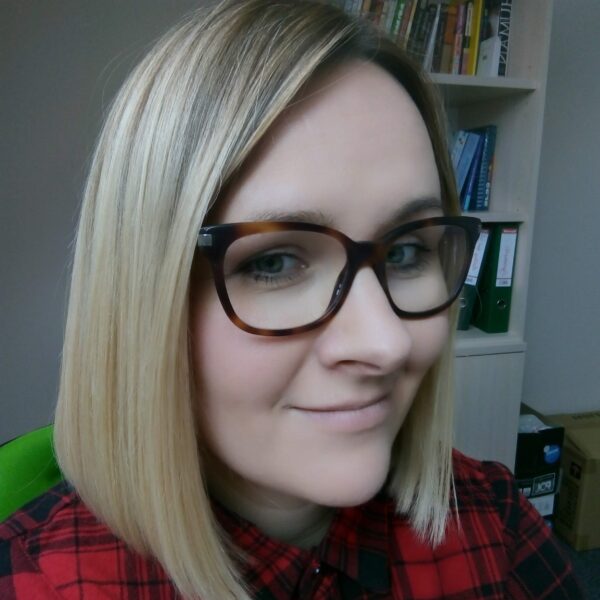
Marta Lonnie is a Research Assistant at the Department of Human Nutrition at University of Warmia and Mazury in Olsztyn, Poland. She holds her master’s degree in Public Health Nutrition from Queen Margaret University in Edinburgh. Her doctoral research investigated the associations between dietary-lifestyle patterns and risks of diet-related diseases in young men (MeDiSH Project).
Her latest scientific interests encompassed the sustainability of human diet, particularly the effect of plant protein on appetite and health in ageing adults, which she explored with Professor Alex Johnstone from the Rowett Institute, University of Aberdeen during several internships supported by the Minister of Education and Science under the program entitled “Regional Initiative of Excellence” for the years 2019-2023. Currently, she is leading her own NCN-funded project – the FlexiFast® Study (the effect of flexitarian, time-restricted eating on cardiometabolic traits in normal weight, young men: a factorial randomized controlled trial).

Professor Kęstutis Romaneckas is chief researcher in the Department of Agroecosystems and Soil Sciences at the Agriculture Academy of Vytautas Magnus University (VMU AA). He gained MSc. in Agronomy from the Faculty of Agronomy, Lithuanian Academy of Agriculture (formally Lithuanian University of Agriculture) and a doctoral degree (Ph.D. ) in biomedical sciences degree from Biomedical Sciences, Agronomy, Lithuanian University of Agriculture. Habilitation procedure, Biomedical Sciences, Agronomy, Lithuanian University of Agriculture. Areas of scientific interest: environmentally and energy friendly crop growing technologies, multi-cropping, precision and organic agriculture, non-chemical weed control, soil properties, biofuels.
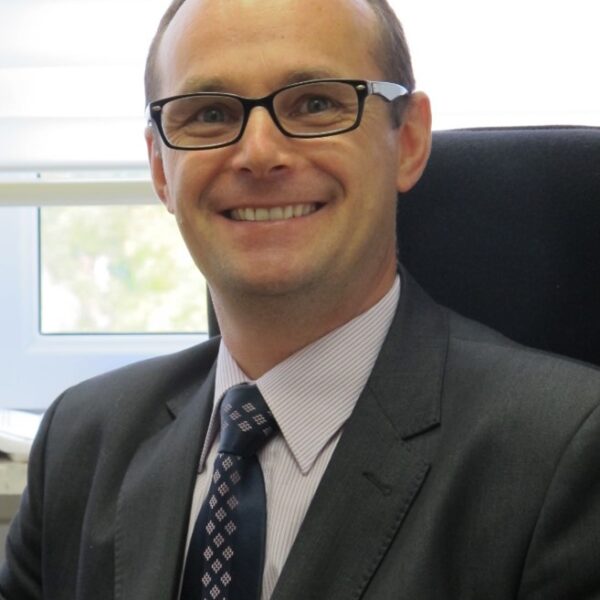
Mariusz Jerzy Stolarski – professor of agricultural sciences since 2014. Working as a professor at the University of Warmia and Mazury in Olsztyn (UWM), conducting research into bioresources, bioeconomy and renewable energy sources. Biomass growing, productivity, quality and the use of perennial and annual alternative crops for energy and industrial purposes. Production technology and logistics of biofeedstock acquisition and processing to obtain higher added value bioproducts and conversion to solid, liquid and gaseous biofuels. Cascaded use of various agricultural- and forest- origin biofeedstock types. Bioconversion of various types of biomass residues by insects. Assessment of economic, energetic and environmental effectiveness of cultivation, production, logistics and processing of biomaterials. Characterisation and assessment of biomass and other RES usability on an individual, local, regional, national and international level.

Tomáš Kopec, Ing., Ph.D. is a Doctor of Animal Production at the Faculty of AgriSciences, Mendel University in Brno. He graduated and received PhD at the Faculty of AgriSciences, Mendel University in Brno. Since 2020, he has been working in the Department of Animal Breeding, at the same faculty. Tomáš Kopec, Ph.D. scientific interest explores cattle husbandry, dairy and beef cattle breeding and production systems of cattle. He is member of Czech Fleckvieh breeding commission in Czech Fleckvieh Breeding Association. To date, he has published more than 20 scientific papers.

Daniel Falta, PhD is an associate professor Animal Husbandry at the Faculty of AgriSciences, Mendel university in Brno, Czech Republic. Since 2005, he has been working at the Department of Animal Science as researcher, junior and later as an senior lecturer. Since 2014, he has been holding the faculty position of Vice-dean for External Affairs and Internationalization.
He is a specialist in cattle breeding systems, especially dairy cattle production systems, and the associated improvement of milk production efficiency. Dairy production is the most prominent livestock industry in the Czech Republic (ICAR – International Committee of Animal Recording). He also deals extensively with animal welfare issues Precision Livestock Farming (PLF) and is a pioneer of biological control systems against flying insect infestations in dairies in Central and Eastern Europe
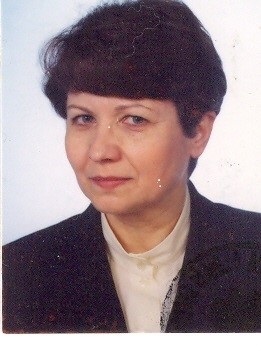
Iwona Bartkowiak-Broda is a professor at the Plant Breeding and Acclimatization Institute – National Research Institute, in the Department of Oilseed Crops in Poznań. She headed the Department of Oilseed Crops for 20 years. The main object of her research is rapeseed. The research and breeding interests at the beginning of her career focused on the quality traits of rapeseed seeds. Then she developed new direction in rapeseed breeding: the development of hybrid varieties accompanied by molecular markers. She is co-author of several varieties of winter rapeseed, as well as white mustard.
In recognition of various scientific solutions introduced into agricultural practice, she was awarded state prizes.

Mariusz Matyka – he received the title of professor of agricultural sciences in 2019. Since this year, he has also been the Deputy Director of the Institute of Soil Science and Plant Cultivation – State Research Institute in Puławy. As part of his professional work, he is involved in the functioning of numerous scientific councils, scientific societies, industry organizations and expert teams. His scientific and research activities focus mainly on the efficiency and economics of agricultural production, regional diversification of agriculture, production of lignocellulose biomass and raw materials for biogas production, as well as designing and evaluating the Common Agricultural Policy.
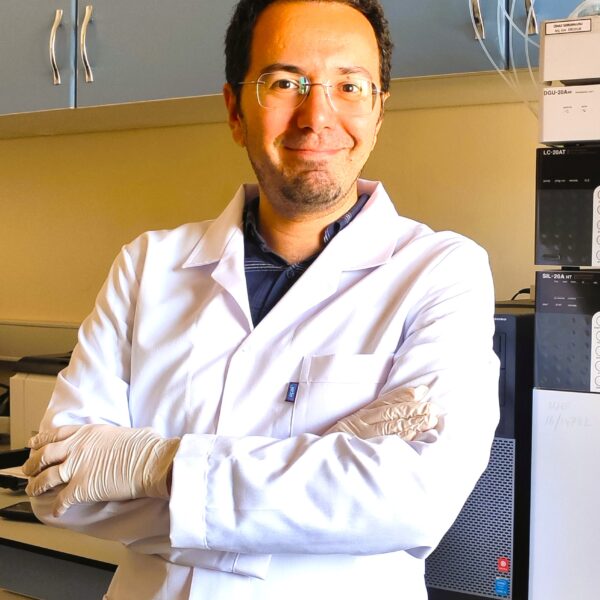
Doganay Yuksel earned his MSc in food engineering at Kahramanmaras Sutcu Imam University, Turkey, where he is currently a Research Assistant in the Department of Food Engineering. His research interests lie in the area of natural products with potential health-promoting properties. Over the course of his career, he focused on topics such as fermented foodstuffs and biologically active degradation products. Continuing his commitment to the development of healthy, innovative, and environmentally friendly products in the food industry, Doganay Yuksel conducts scientific research to contribute to the sector.

Katarzyna Walendzik, PhD is is an associate professor at the Regenerative Biology Team in Institute of Animal Reproduction and Food Research of Polish Academy of Sciences. She gained Ph.D. degree from the Faculty of Veterinary Medicine of the University of Warmia and Mazury in Olsztyn. Her scientific interest focused on the molecular and biological factors that regulate the dermal white adipose tissue (dWAT), recently recognized population of adipocytes localized within dermal layer of the skin. The aim of her current project funded by National Science Centre (NCN) is to establish cumulative effect of age and diet on dWAT secretory profile, lipid storage (lipogenesis) and lipid mobilization (lipolysis) in intact and post wounded skin. The primary goal of this study is to investigate in depth the effects of aging and nutrition on the lipid profile in different skin layers, notably the dermis and to identify the influence of biological factors on the skin lipidome in the context of skin wound healing.

Dr. hab. Małgorzata Ewa Drywień, is a professor at the Warsaw University of Life Sciences, specializing in human nutrition. She is the head of the Department of Human Nutrition. Her scientific interests include research on the diet and nutritional status of various population groups in the context of diagnosing the causes of diet-related diseases and health prevention, also in the field of gastrointestinal disorders. She is also interested in nutritional determinants of body composition and structure. She was the manager or contractor in 10 research projects. She is the secretary of the Polish Society of Nutritional Sciences and a member of the Committee on Human Nutrition Science of the Polish Academy of Sciences.
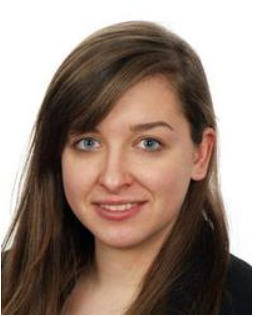
Paulina Opyd, Ing. Ph. D. is an assistant professor at the Faculty of Animal Bioengineering, University of Warmia and Mazury in Olsztyn. She graduated and received PhD at the Institute of Animal Reproduction and Food Research, Polish Academy of Sciences in Olsztyn. On 2021, she started working in the Department of Animal Feeding, Feed Science and Cattle Breeding, where she take up the topic of the nutritional value of feed for farm animals, with particular focus on the possibility of using raspberry pomace in feeding ruminants. This research have a significant impact on the development of the discipline and the National Science Center awarded her a research grant to conduct the above research. Her scientific interests focused also on phytotherapy, aromatherapy and naturotherapy, and her future work will focus on the use of herbs and medicinal plants in nutrition and support of animal organisms.

Joanna Klepacka – habilitated doctor of agricultural sciences in the discipline of food and nutrition technology, specializing in food chemistry and analysis and food technology. Employed as a university professor at the Faculty of Food Science at the University of Warmia and Mazury (UWM) in Olsztyn. Scientific interests concern health-promoting ingredients present in food raw materials and changes that are affected by technological processing of food and its storage. The research conducted for many years covers, first of all, the characteristics, properties and occurrence of antioxidant compounds, especially polyphenols and some minerals, as well as the analysis of consumer preferences and behavior.
Author of 76 scientific publications and 79 conference announcements, reviewer of many national and international publications. An academic teacher with many years of experience, a supervisor of over 120 diploma theses (including an assistant supervisor in the doctoral procedure), two-time faculty finalist in the Belfer UWM competition.
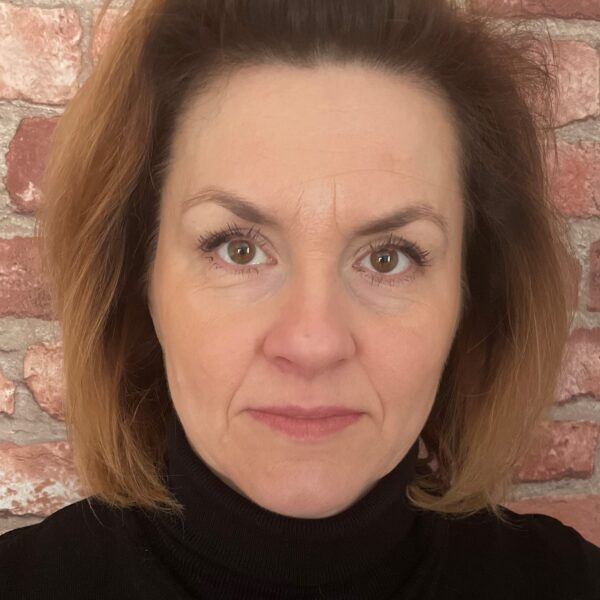
Marzena Mogielnicka -Brzozowska is currently Associate Professor at the Department of Animal Biochemistry and Biotechnology, Faculty of Animal Bioengineering, University of Warmia and Mazury in Olsztyn. She earned her Master of Engineering in Agricultural Sciences, at the same place in 2000. PhD of Agricultural Sciences, University of Warmia and Mazury in Olsztyn, title of doctoral thesis: “Identification of heparin-, phosphorylcholine- and Zn2+ ion-binding proteins in boar seminal plasma” with supervisor: Prof. Jerzy Strzeżek, she finalised in 2006. After completing her PhD, She accepted a POST-DOC position in University of Manitoba, Canada, Department of Animal Scienceat the University of Manitoba for 1.5 year (2008 – 2009). In 2017 she obtained her habilitation entitled: “Proteomic Structures of Canine Seminal Plasma – Biochemical Characterization and Influence on Selected Functions of Spermatozoa”. M. Mogielnicka-Brzozowska most important scientific achievemt are: i) identification and biochemical characteristics of ligand-binding (mostly zinc-binding) proteins of boar and dog seminal plasma. ii) isolation and biochemical characterization of prostasomes form dog seminal plasma. iii) proteomic and bioinformatic characteristics of cat semen obtained after urethral catheterization. iv) proteomic and bioinformatic analysis of epididymal spermatozoa of dog in age dependent manner. She conducted many research in the field of male reproduction at the molecular level, with an emphasis on proteomic analyses. From 2012 Supervisor of the Animal Biochemistry and Biotechnology Scientific Club. Supervisor of many engineer’s and master’s theses, and in the completed and currently implemented doctoral dissertations. She has over 70 refereed publications many as corresponding author. Summary of IF is 36. Hirsh index 11 Google Scholar. She is long term students teacher in biochemistry and biotechnology. Team leader for scientific work organzation.
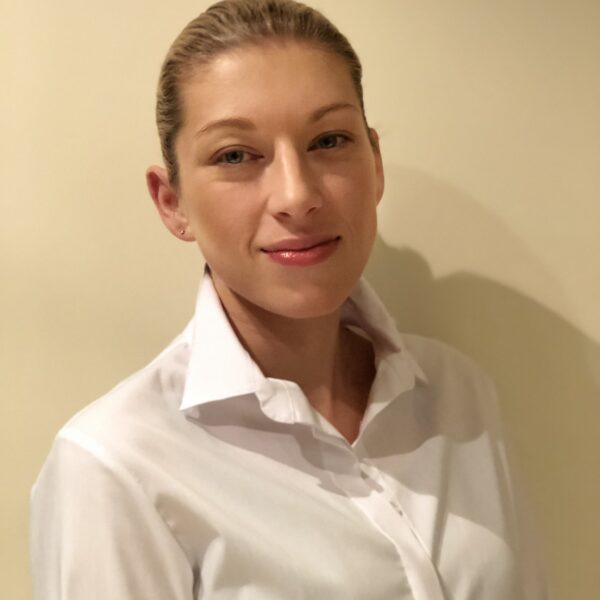
Marta Czarnowska-Kujawska – PhD in economic sciences in the discipline of commodity science, specializing in food analysis and food technology. Employed as an assistant professor at the Faculty of Food Science at the University of Warmia and Mazury (UWM) in Olsztyn. Scientific experience gained both in the country and in foreign Universities, e.g., Gent, Helsinki, Amsterdam, Budapest. Scientific interest concerns novel functional foods, especially food products enriched with ingredients of natural origin, analysis of bioactive compounds with a potential beneficial effect on the human health, detection of food adulteration. The research work is conducted not only with the use of modern techniques of instrumental analysis, but also with the developed methods of sensory analysis. Beneficiary (contractor, manager) of two research projects financed by National Science Centre. Author of 35 scientific publications and 25 conference announcements. An academic teacher involved in the development of new teaching subjects, promotion of the Faculty, including workshops on food science for children and teenagers.
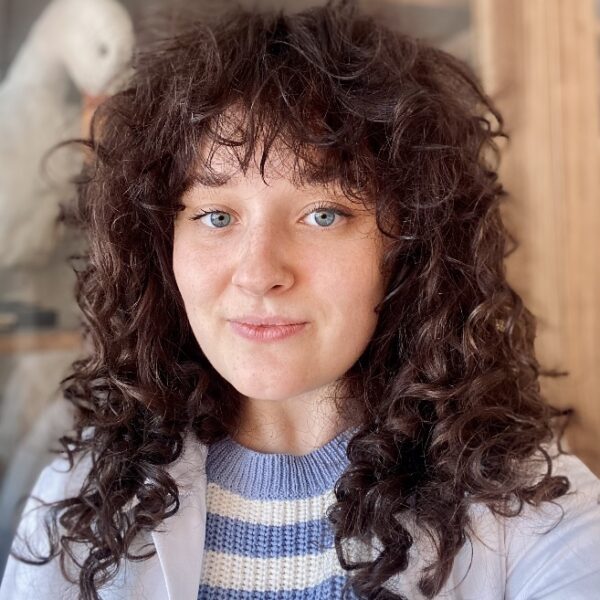
Monika Nutautaitė, MSc, is a PhD student and assistant at the Institute of Animal Rearing Technologies, Faculty of Animal Sciences, Veterinary Academy, Lithuanian University of Health Sciences (LUHS), Lithuania. She holds an MSc in public health from the LUHS Faculty of Veterinary Medicine. Since 2017, she has been engaged in research at the Institute of Animal Rearing Technologies, Faculty of Animal Sciences, LUHS, focusing on areas such as animal nutrition, natural alternatives to antibiotics and coccidiostats, animal rearing technologies and their welfare, and final animal-derived production quality assessment. Her current research focuses on the utilization of macroalgal biomass and other alternative materials in feed production to reduce dependence on traditional feed raw materials. This approach aims to promote sustainable development in livestock farming, encompassing the entire supply chain from river/field to table. Monika Nutautaitė’s research work has the potential to contribute to the improvement of livestock health and welfare, as well as to the production of high-quality animal-derived products. Her research findings have implications for the livestock industry and public health.
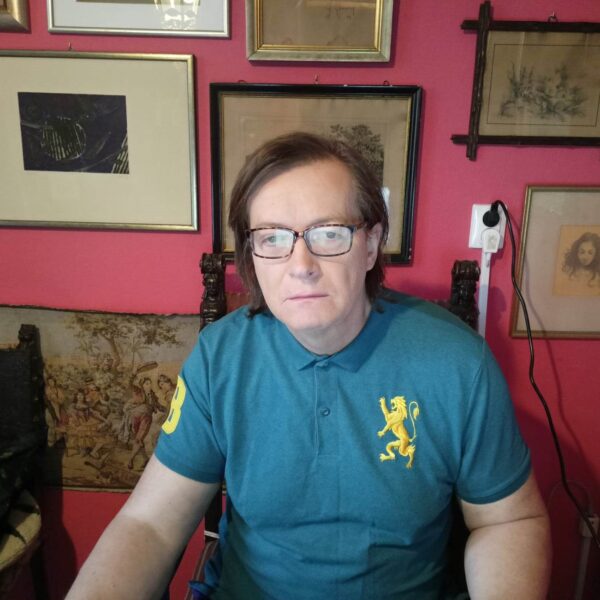
Prof. dr hab. inż. Stanisław Mleko – Head of the Department of Dairy Technology and Functional Food, University of Life Sciences in Lublin
Member of The Committee on Food and Nutrition Sciences of the Polish Academy of Sciences
1997-2000 – research scientist, North Carolina State University, Raleigh, U.S.A., 2001 – associate professor, Royal Veterinary and Agricultural University, Copenhagen, Denmark; 2002 – research scientist, University of Wisconsin, Madison, U.S.A., 2005 – visiting professor, University of Florida, Gainesville, U.S.A.; 2010 – visiting professor, Institut National Polytechnique de Lorraine, Nancy, France, 2010 – visiting professor, University of Alberta, Edmonton, Canada; 2012 – visiting professor, Osaka City University, Japan.
Scientific interests:
Functional food development, pro athlete food, food protein functionality, cold plasma processing, food rheology.
United States Patents: Foegeding E.A, Mleko S. Methods of forming whey protein products. United States Patent No. 6,139,900; Foegeding E.A., Mleko S. Whey protein products. United States Patent No. 6,383,551; Foegeding E.A., Mleko S. Methods of forming whey protein products. United States Patent No. 6,451,371.
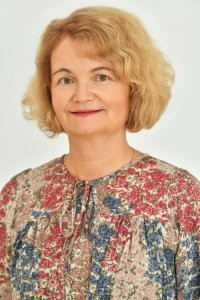
Tatyana Stefanovska is Associate professor, Department of entomology, integrated pest management and plant quarantine , National university of life and environmental sciences of Ukraine. She earned a Specialist degree in plant protection from the Agricultural academy and Ph.D. in biology/nematology from the State Agricultural University. Her research application is wide-ranging in the scope of topics tackled and in the taxa and crop that are studied. There is, however, a common thread to the study she is currently engage in. This is focused on why and how agronomic management practices, such as soil treatment, amendments (organic and synthetics), plant growth regulators, pesticides enhance productivity of perennial grassland biofuel crops, namely Miscanthus × giganteus in deteriorated/agricultural land. In addition, how it is possible to use these practices to eliminate risk of this energy crop yield reduction from the soil nematodes and below ground/ foliage insects. There are additionally recent intentional links to assessment of impact of phytotechnologies with energy crops to evaluate soil health by composition of nematode and springtail community as bioindicators.

Miroslav Urosevic, Dr. Vet. Med., Ph. D. is an assistant professor at the Dep. of animal science, Faculty of Agriculture, University of Novi Sad (Serbia). During the previous five years, he focused his teaching and research work on the field of aquaculture production. To date, he has published more than a hundred scientific papers (veterinary medicine and animal science area) and has been involved in the implementation of many international projects. In particular, Dr. Urosevic was a Country project leader for a bilateral project (2021-2022) between France and Serbia “Building bridges between France and Serbia with higher education in Aquaculture (FAN-AQUA)” financially supported by The French Ministry for Europe and Foreign Affairs (ES-BALK)”. Currently (2021-2025), he is a Leader of the project team at University of Novi Sad as a partner in the European Union Erasmus+ project, entitled FARMER (“Future Agriculture Requires Motivation, Education and Retainment”). A topic of his lecture at the “RID” conference is his role as the main coordinator of CEEPUS network entitled “Sustainable Fishery and Aquaculture in the 21st century – AQUA-21” awarded for the mobility of students and staff among 16 Universities in 12 countries of Central and East Europe.

Doctor Marius Lasinskas is a Agronomy faculty member at the Department of Plant Biology ad Food Sciences Agriculture Academy Vytautas Magnus University, Lithuania. From 2018 to 2022 he completed his PhD studies at the Department of Plant Biology and Food Sciences, Faculty of Agronomy, Vytautas Magnus University, Agriculture Academy. From 2003 to 2008 he graduated with a Professional Qualification of the Pharmacist and a Master’s degree in Pharmacy at Kaunas University of Medicine, Faculty of Pharmacy. His research areas are safety and quality of plant raw materials for food, storage and processing of plant raw materials, organic, biodynamic food, functional food and human health.
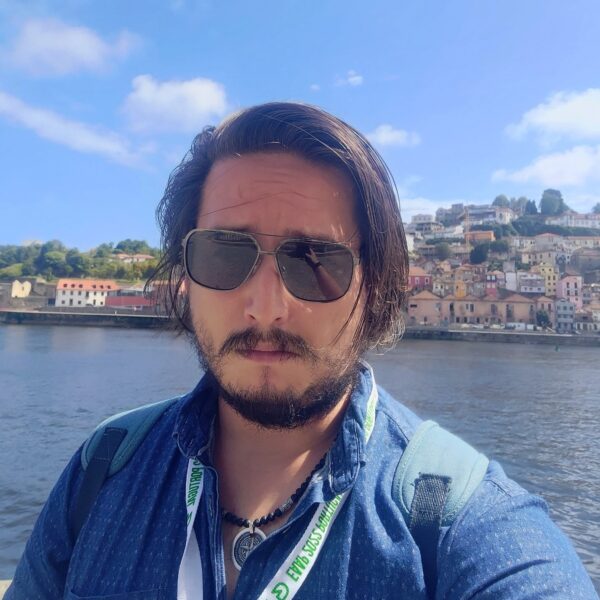
Remigiusz Gałęcki, DVM, serves as a Research Assistant at the Department of Veterinary Prevention in Feed Hygiene, Faculty of Veterinary Medicine, University of Warmia and Mazury in Olsztyn. His primary research interests revolve around veterinary entomology, specifically focusing on edible insects, pests, and ectoparasites. His current research focuses on the possibility of using edible insects in the agri-food sector, with a particular emphasis on the yellow mealworm and assessing the impact of this insect on animal health. The scientific goal of the adopted assumptions is the implementation of edible insects in the broadly understood veterinary medicine. Furthermore, his research extends to neglected vectors of infectious diseases, including flies from the Hippoboscidae family.
He completed scientific internships at the One Health Center, Berry College, USA (2018), and the National Research Center for Protozoan Diseases, Obihiro University of Agriculture and Veterinary Medicine, Japan (2019, 2023). He has contributed to four R&D projects, including the “Gospostrateg” project, which aimed to develop a strategy for utilizing alternative sources of insect protein in animal nutrition, and the “UpWaste” project, focusing on sustainable agricultural residue conversion. He leads the project “Development of an insect protein feed for companion animals with food-responsive enteropathies”, financed under the “LIDER XII” program by the National Center for Research and Development. This innovative approach is being tested on rats and dogs using clinical, gastroenterological, histological, immunological and microbiological assessments.
He is a co-author of 32 scientific articles, 3 books, and 46 conference reports. Additionally, he has provided consultation to numerous companies specializing in breeding edible insects and their applications in the agricultural and food industries. He is also a co-founder of two start-ups in the edible insect sector.

Prof. dr hab. Jarosław Całka – Full professor of veterinary sciences, working as a professor at the University of Warmia and Mazury in Olsztyn (UWM). Interested in the chemical plasticity of neurons of the enteric nervous system of the stomach, duodenum, jejunum and ileum of the pig. Veterinary surgeon 1982, doctor 1990, doctor habilitated 2003, full professor 2009.
Since 2009 – Head of Department of Clinical Physiology in the Faculty of Veterinary Medicine, UWM in Olsztyn. European Union Expert in the European Association of Establishments for Veterinary Education. In 2001, member of the accreditation team for a comprehensive assessment of the Faculty of Veterinary Medicine in Thessaloniki, Greece. In 2004, re-appointed as a member of the accreditation team in the European Association of Establishments for Veterinary Education, visiting the Faculty of Veterinary Medicine at Uludag University in Bursa, Turkey. Author and coauthor of 179 publications. IH = 21.
Academic internships: 1986/1988 – Fulbright Scholarship, seventeen months in the Department of Anatomy and Cell Biology, Emory University in Atlanta, USA; 1992 – six months in the Department of Cerebrovascular Research, Cleveland Clinic Foundation, Cleveland, USA; 1992/1995 – thirty-seven months in the Institute of Medical Neurobiology, Otto von Guericke University, Magdeburg, Germany.
Awards and honours: Seven awards for research and teaching accomplishments, granted by the Rector of the UWM or by the Minister of Science and Higher Education. Medal of the Commission of National Education.

Krystyna Makowska, DVM, PhD – working as an adiunct in the Departament of Clinical Diagnostics, Faculty of Veterinary Medicine, University of Warmia and Mazury, Olsztyn (Poland) since 2019. During her PhD studies she was working at the Department of Clinical Physiology, under the supervision of prof dr hab. Sławomir Gonkowski, who is on the list of World’s Top 2% Scientists by Stanford University. In 2020 she obtained a PhD degree for defending dissertation untitled “The influence of selected physiological and pathological factors on the amount and neurochemical characteristics of neurons immunoreactive to calcitonine gene related peptide (CGRP) in the enteric nervous system of the porcine descending colon”. Her primary research interests are toxicology, gastroenterology and neuroplasticity of enteric neurons. Currently, in her scientific work, she analyzes the degree of exposure and the impact of toxins on the human and animal organisms, and the main subject of her research are bisphenols. The total number of her scientific works is 71 with total impact factor (IF) 165,025, number of citations (according Web of Sciences) 317 and her Index Hirscha (HI) is 11. She was working as a investigator in many scientific projects and is a project coordinator of a grant financed by National Science Centre in Poland „The comparison of the influence of bisphenol A (BPA) and bisphenol S (BPS) on the enteric nervous system with particular emphasis of the cholinergic neurotransmission within the colonic myenteric plexus”. She is working in many international scientific cooperations including the Department of Analytical Chemistry, Higher Polytechnic School, University of Seville (Spain), Laboratory of Pharmacology and Neurobiology ICBAS – University of Porto (Portugal) and Laboratory of Toxicology, School of Medicine, University of Crete, Heraklion, Crete (Greece). For her scientific work Krystyna Makowska received several scientific awards from which the most important was two scholarships from the Polish Minister of Education and Science for outstanding achievements in science for doctoral students (in 2019) and for young scientists (in 2020) as well as START Scholarship from the polish FNP Foundation (Foundation for Polish Science) – Annual scholarships for outstanding young scientists at the beginning of their scientific career with documented achievements in their field of research (in 2019).
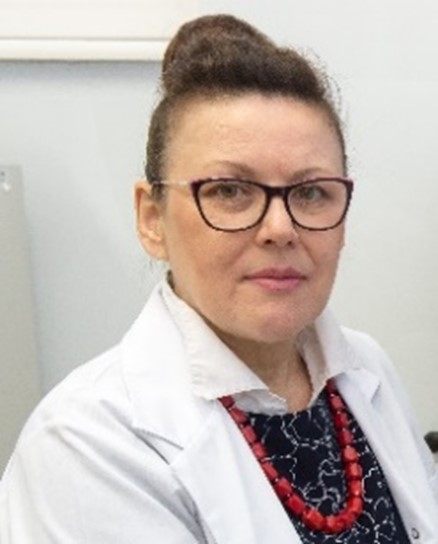
Professor, Ewa Korzeniewska, Dr. Habil., Eng. is a professor of environmental microbiology at the Faculty of Geoengineering, University of Warmia and Mazury in Olsztyn, Poland. The research conducted by Ewa Korzeniewska focuses on the fate and risk of pollutants such as antibiotic resistant microorganisms and their genes responsible for antibiotic resistance in the environment. The research has 4 main avenues: 1) the environmental monitoring and biomonitoring of air, water, wastewater and soil pollution in relation to transmission of antibiotic resistant microorganisms and their genes responsible for antibiotic resistance in the environment; 2) to assess the effects of antibiotic resistance genes on living organisms and human health; 3) to determine influence of wastewater treatment technology on ARGs abundance in surface water environment 4) to study antibiotic resistance in relationship to “One health approach”. Moreover, she also participates in research on intensification of production of high-energy biogas from organic waste using microorganisms. She is an Associate Editor of the Science of the Total Environment (STOTEN) and International Journal of Environmental Research and Public Health (IJERPH), and a member of Editorial Board of Journal of Hazardous Materials. To date, she has published more than hundred full-length research papers and has been involved in the implementation of over a dozen scientific research projects.

Professor, Marcin Dębowski, Dr. Habil., Eng. – The research work of Professor Marcin Dębowski focuses on the search for modern wastewater treatment technologies of various origins and characteristics, methods of water treatment as well as treatment and neutralization of sewage sludge. The second direction of scientific development is research focused on the development of bioenergy technologies based mainly on the production of biogas in the process of methane fermentation of organic substrates, bio-oil accumulated by selected strains of algae and hydrogen produced by bacteria and microalgae. Prof. Marcin Dębowski is the author and co-author of many solutions for fermentation bioreactors, devices for conditioning biomass before the anaerobic process and technological solutions for the production and separation of algae biomass. The speaker’s research profile is complemented by issues related to reducing the emission of gaseous pollutants and odorous substances into the atmosphere. The result of the research work is the development of many original technologies that are protected by patent claims or have been implemented. The Professor’s team closely cooperates with business entities in the field of issues related to broadly understood environmental protection and energy conservation. The cooperation mainly concerns the modernization of water and wastewater management by improving wastewater treatment systems, rainwater management, rationalizing water consumption, reducing gaseous pollutant emissions into the atmosphere.

Dr. Habil. Eng. Mariusz Gusiatin, Assoc. Prof. – Habilitated doctor of technical sciences, discipline of environmental engineering. Employed as an Associate Professor at the University of Warmia and Mazury in Olsztyn (UWM), Faculty of Geoengineering. Visiting professor at the Luleå University of Technology in Sweden. Scientific research related to the remediation and bioremediation of soils contaminated with heavy metals, development of sorption methods for removal of pollutants, and environmental use of bioproducts from waste. Fractionation of heavy metals in environmental samples. Immobilization of heavy metals in soils using mineral and organic amendments, including biologically and thermally processed waste (compost, biochar, ash). Fabrication of functionalized biochar and its application. Usability of materials based on humic substances in environmental remediation. Evaluation of the effectiveness of phytostabilization of heavy metals facilitated by various amendments. Ex-situ and in-situ soil washing technologies for heavy metal removal using plant and microbiological biosurfactants and new-generation agents recovered from waste (“green” remediation). Holistic valorization of soils remediated by various methods.
Author or co-author of over 140 papers and 1 monograph. Member of national and international societies: International Biochar Initiative; Polish and International Humic Substances Society; European Geosciences Union, Division: Soil System Sciences, Subdivision: Soil Pollution and Reclamation; Soil Degradation, Protection and Reclamation Committee. Associated Editor of the journals: Environmental Analysis & Ecology Studies; Sustainability and Soil, Air, Water Research. Guest Editor of special issues on environmental remediation.

Piotr Bórawski – associate profesor at the Department of Agrotechnology and Agribusiness, University of Warmia and Mazury in Olsztyn. He achieved phd in management science at the Faculty of Management in University of Warmia and Mazury in Olsztyn in 2002. He did habilitation in economic sciences at Warsaw University of Life Sciences-SGGW, Poland in 2014. He is an author and co-author of 249 publication, papers, books and chapters in books. He did interships at Pennesylvania State University in the USA, Slovak University of Agriculture in Nitra, University of Castilla-La Mancha: Ciudad Real in Spain, Tavria State Agrotechnological University in Ukraine and in other Universities. He is salso a scientific supervisor of four phd dissertations. For his scientific activity the Rector of University of Warmia and Mazury awarded him eight times.


